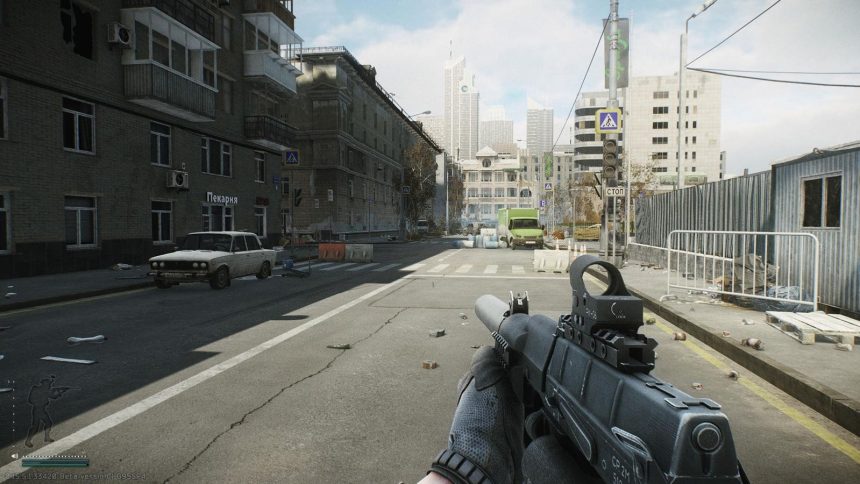A new and insidious cheating method has emerged in the online multiplayer game Escape From Tarkov, capable of crashing opponents’ games by overloading their CPUs. This exploit, which has gained traction in recent days, involves the cheater transmitting a specific in-game sound, akin to the noise made when searching a container, over the voice-over-IP (VOIP) system. This seemingly innocuous sound triggers a dramatic spike in CPU usage, pushing the targeted player’s system to its limits until it crashes. The cheater can then freely loot the incapacitated player’s character.
The exact mechanism by which this sound exploit functions remains unconfirmed, though speculation within the Tarkov community points towards a potential connection with the recent upgrade to the Unity 2022 game engine. This update, implemented during the latest game wipe (a periodic reset of in-game progress), may have inadvertently introduced vulnerabilities exploited by cheaters. The sudden surge in CPU load suggests an unintended interaction between the sound processing and the game engine, potentially creating an infinite loop or resource leak that overwhelms the target’s system.
Adding to the frustration, some cheaters have reportedly combined this CPU-crashing exploit with a speed hack that allows for incredibly fast movement while prone or even slightly beneath the map’s surface. This combination makes these cheaters incredibly difficult to counter. The speed hack allows them to traverse the map rapidly, affecting multiple players within a single raid, while the prone/submerged movement makes them difficult targets. This combination of exploits creates a nearly insurmountable challenge for legitimate players.
While some high-profile streamers with powerful PCs have managed to overcome these cheaters due to their superior hardware, the average player is left vulnerable. The disparity in hardware capabilities creates an uneven playing field, effectively granting cheaters an advantage against players without top-of-the-line systems. The ability to crash opponents’ games remotely, combined with enhanced mobility, allows cheaters to operate with near impunity.
Battlestate Games, the developers of Escape From Tarkov, have yet to publicly address this emerging cheat. This silence, while concerning for the player base, is not entirely unexpected. The studio has historically maintained a relatively low profile regarding cheat detection and prevention measures, typically communicating only through periodic announcements of banned accounts. The lack of specific information about the cheat and potential countermeasures leaves players in a state of uncertainty.
The proliferation of this CPU-crashing cheat, combined with pre-existing technical issues from the recent wipe, is likely to drive a significant portion of the player base towards the game’s PvE (Player versus Environment) mode. While controversial among some players, PvE offers a respite from the increasingly hostile environment created by cheaters in PvP (Player versus Player). It allows players to engage with the game’s core mechanics and loot progression without the constant threat of unfair exploitation. This migration towards PvE represents a potential shift in the game’s community dynamics and highlights the significant impact of cheating on player behavior.
The ongoing silence from Battlestate Games concerning the cheat exacerbates the situation. Players are left without any official acknowledgement of the problem, much less any indication of when or how it might be addressed. This lack of communication fuels speculation and anxiety within the community, potentially leading to further erosion of trust in the game’s anti-cheat measures. The absence of a clear plan of action from the developers leaves players feeling vulnerable and frustrated, further incentivizing the shift towards PvE.
The emergence of this new exploit underscores the ongoing challenges faced by online multiplayer games in combating cheating. The ingenuity of cheaters constantly pushes the boundaries of game security, requiring developers to remain vigilant and proactive in their anti-cheat efforts. The current situation in Escape From Tarkov highlights the potential for even seemingly minor vulnerabilities to be exploited with devastating consequences for the player experience. The long-term health of the game hinges on Battlestate Games’ ability to effectively address these exploits and restore player confidence in the integrity of the game’s PvP environment.
The combination of the CPU-crashing exploit and the speed hack creates a particularly potent and frustrating experience for legitimate players. The speed hack allows cheaters to quickly locate and target players, while the CPU crash effectively removes any possibility of defense. This creates an environment where fair competition is impossible, driving players away from PvP and potentially impacting the overall longevity of the game. The current situation underscores the importance of robust anti-cheat measures and swift developer responses in maintaining a healthy and engaging online gaming experience.
The silence from Battlestate Games regarding the cheat and the extended closure of the Flea Market, an in-game trading platform, add further layers of complexity to the situation. The Flea Market closure, initially intended to address economic imbalances within the game, now inadvertently contributes to the frustration of players seeking to replace gear lost to cheaters. This confluence of factors creates a perfect storm of negativity, potentially accelerating the exodus of players from PvP. The lack of clear communication from the developers only serves to amplify these negative sentiments.
The escalating prevalence of this cheat within Escape From Tarkov raises serious concerns about the future of the game’s PvP community. The combination of disruptive gameplay, lack of official response, and ongoing technical issues paints a bleak picture for players seeking challenging and fair competition. Unless Battlestate Games takes decisive action to address these issues, the game risks alienating a significant portion of its player base, potentially driving them to alternative games that offer a more secure and balanced online experience. The current situation serves as a stark reminder of the importance of proactive cheat detection and communication in maintaining the health and longevity of online multiplayer games.



